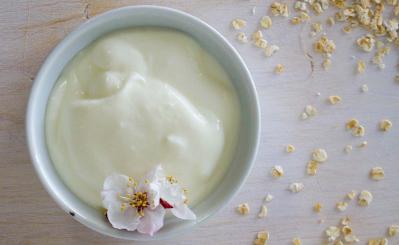Veganuary – how good are dairy-free yogurt alternatives?

More and more people around the world are starting the new year with a vegan month: Veganuary. The reasons are as varied as the people themselves, whether it's to live healthier, more sustainably or more ethically, or at least to try it out for a month. To make the endeavor successful, many turn to substitute products to replace their favorite foods. Thus, also the food industry adjusted itself already more to the increasing number of vegan consumers and brings more vegan alternatives into the supermarket shelves. These include non-dairy natural yogurt alternatives.
Plant-based natural yogurt alternatives?
But can yogurt substitutes based on soy, almond, oat, coconut, cashew or lupine really compete in terms of taste? How should their ingredients be evaluated? With these questions in mind, 22 products were sent to a laboratory. A total of 13 products had an organic seal. What vegan consumers will certainly be pleased about: half of the plant yogurts were rated "very good", and another four received a "good".
Despite minor defects, all products passed the sensory test
In the sensory testing of the substitutes, the taste experts were unanimous: all products were rated "very good" or "good". Most of the substitutes had the sour taste which is typical for yogurt.
The sour taste is produced during fermentation, i.e. when lactose is converted into lactic acid (lactate) by lactic acid bacteria. What is hard to avoid, however, is that the particular flavor of the main ingredient comes through. All yogurt alternatives tasted slightly of their main vegetable ingredient.
However, it is more difficult to imitate the creamy texture of yogurt made from milk. With milk yogurt, the creaminess comes automatically from the natural binding of the protein it contains. Milk, however, contains more protein, which is why guar gum or starch is used in yogurt alternatives to achieve the same effect. In two products could the added tapioca starch is noticeable.
In another product, an atypical strong fruity-sour taste was detected, which was caused by the addition of grape juice concentrate. Grape juice concentrate is sometimes used in foods to make them sweeter.
Six products attracted attention due to added flavorings, although their naturalness was declared on the product packaging. Flavorings are chemical compounds that can be used to control the taste and/or smell of food. There are artificially produced as well as natural flavorings. In the mentioned products, slight traces of off-flavors were present.
Phosphates and glyphosate: additives of concern
When the ingredients were checked, calcium phosphates were found. A vegan diet can lead to calcium deficiency. To prevent this or to enable vegans to absorb calcium more easily, some foods are enriched with this mineral. However, the addition of calcium as a phosphate salt is not without controversy. Phosphates are criticized for increasing the risk of heart attacks and strokes because they alter the inner walls of blood vessels. There is also an increased risk of osteoporosis, and phosphates can cause muscles and skin to age more quickly.
Two soy-based products were contaminated with glyphosate. Presumably, the pesticide entered the food through conventional cultivation of the soy. The total herbicide glyphosate is a chemical compound from the phosphonic acid group. Its plant-killing action contributes to the extinction of species in the agricultural landscape and is also suspected of promoting cancer in humans. At EU level, the active ingredient is still approved until the end of 2022. Depending on the crop and type of application, different maximum residue levels are applicable.
The correct labeling of dairy substitutes
If there is no real dairy product in it, it may not be called a dairy product, as the European Court of Justice ruled in 2017. Since then, the "guiding principles for vegan and vegetarian foods similar to foods of animal origin" have been applied in Germany. Accordingly, purely plant-based yogurt substitutes may not be marketed under the name "yogurt", but must have a different name. There are no limits to one's own naming creativity, as long as it is not misleading.
Let Tentamus laboratories analyze your plant-based dairy alternatives
No matter what plant your dairy alternatives are based on, our experts can analyze your vegan products for possible contamination with mineral oil residues, pesticide residues, or traces of heavy metals. We make sure that all maximum residue levels are not exceeded. In addition, we can also test your products for microbiological safety.
In addition, we support you in the sensory testing of your substitute products. Our experienced and trained sensory team tests and evaluates the taste, appearance, mouthfeel and odor of your food according to strict specifications. We make sure that the taste matches the value-adding ingredients and that there are no off-flavors.
This way you can be sure to offer your consumers an all-around high-quality and delicious food.
If you have any questions about our service, please do not hesitate to contact us. Our expert will be happy to help you.
Nicole Schröer
nicole.schroeer@tentamus.com
+49 30 206 038 133
Quelle: Ökotest